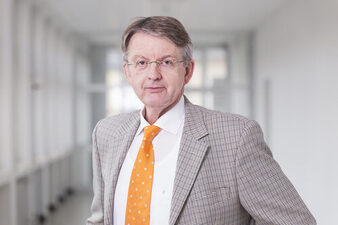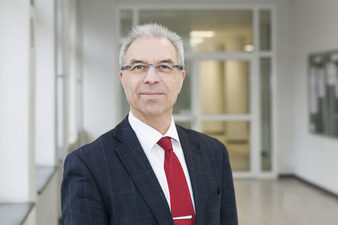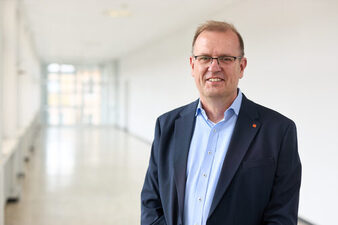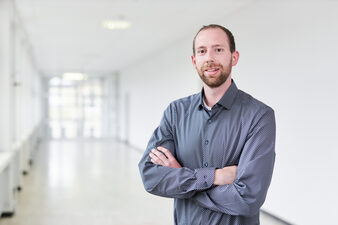Profile
In the vehicle electronics laboratories, students of vehicle development and vehicle electronics are given practical insights into the function and application of sensors, microcontrollers, bus systems, electric drives, acoustics, switching and measurement technology and the associated software development processes specifically for use in vehicles of all kinds by means of laboratory exercises.
As part of their Bachelor's and Master's theses, they are specifically introduced to scientific work and can establish initial contacts with industrial partners by working on practical internal and external projects.
The laboratory structure offers students and research/development projects with external partners a broad field of topics and research. Increasing electromobility and the demands for environmental compatibility, sustainability, safety and Business Studies are leading to a further increase in the proportion of electronics and electrical systems.
The Laboratory for Sensors and Measurement Technology is concerned with the use of a wide variety of sensors and sensor systems to record the environment, the metrological recording and processing of sensor data, particularly for applications in vehicles. The temperature behavior of pressure, acceleration, magnetic field and temperature sensors, for example, is tested in various climate chambers. Automated measurement and evaluation is carried out using LabVIEW.
The laboratory for power electronics and electrical drives provides practical insights into the operating behavior of electrical machines/drives, as well as the functionality of power electronic circuits for vehicle applications.
Direct current, BLDC, asynchronous and synchronous machines, as well as power electronic circuits based on new SiC and GaN power semiconductors, among others, focus on applications for electric and hybrid vehicles.
Cooperation with the vehicle and drive technology laboratories enables the investigation of power electronic systems and electric drives on test benches designed for combustion engines and electric motors, for hybrid vehicle drives and the development of fuel cell drive concepts.
The laboratory for microcontrollers, bus systems and EMC is involved in teaching and research into the special microcontroller and bus systems used in vehicles.
The large number of electronic components in today's vehicles, which are necessary for safety, environmental compatibility and comfort, require the exchange of large amounts of data. Communication takes place via CAN, FlexRay, LIN or ISAnet bus systems. All systems and control units must meet the requirements of electromagnetic compatibility (EMC), which is verified by measurements.
In the laboratory for software engineering and real-time systems, the focus is on topics from the areas of multimedia technology (infotainment), the software development process and electronic systems under real-time conditions.
Tasks in the field of data compression of digital media including the acquisition, storage and processing of media data streams and in the field of microcontroller-controlled and networked control units are carried out in teaching and research.
This includes in particular the handling and application of various process models and their phases. The use of industry-standard tools along the V-model is obligatory. As a cooperation partner of Microchip, one of the world's largest microcontroller manufacturers, the latest hardware and development tools are used in the laboratory, from the simple 8-bit controller to the 32-bit multicore.
A unique feature is the high-speed camera system, which records up to 10,000 images per second. This allows phenomena and problems to be recorded and analyzed in research and applied teaching.
The laboratory for acoustics in the FZE deals with the noise emissions of systems, components and vehicles, which are a key quality feature in the automotive and mechanical engineering industries. Acoustic quality criteria (quiet, harmonious, sporty, etc.) and 'sound design' are particularly important for electric vehicles.
The research and development work is geared towards future requirements in the areas of vehicle development, tooling systems, production systems, motors, pumps, etc.
The field of vibroacoustics covers the excitation and propagation of sound and vibrations in solid bodies, as well as the radiation of vibrations in the form of audible airborne sound. The measurement and simulation of sound propagation for vehicles, machines and aggregates is a focal point of the work. Noises that occur provide information about the condition of the machine and allow critical components to be identified at an early stage.
Equipment
Room F004: Vehicle hall & workshop
Room F104: Practical room
Room F102: Sensors and measurement technology in FE
Room F103, F106: Software engineering and real-time systems
Room F107: Microcontrollers, BUS systems and EMC
Room F108: Power electronics and electrical drive systems
Room F109: Acoustics in vehicle development
Selm: Workshop & vehicle proving ground




